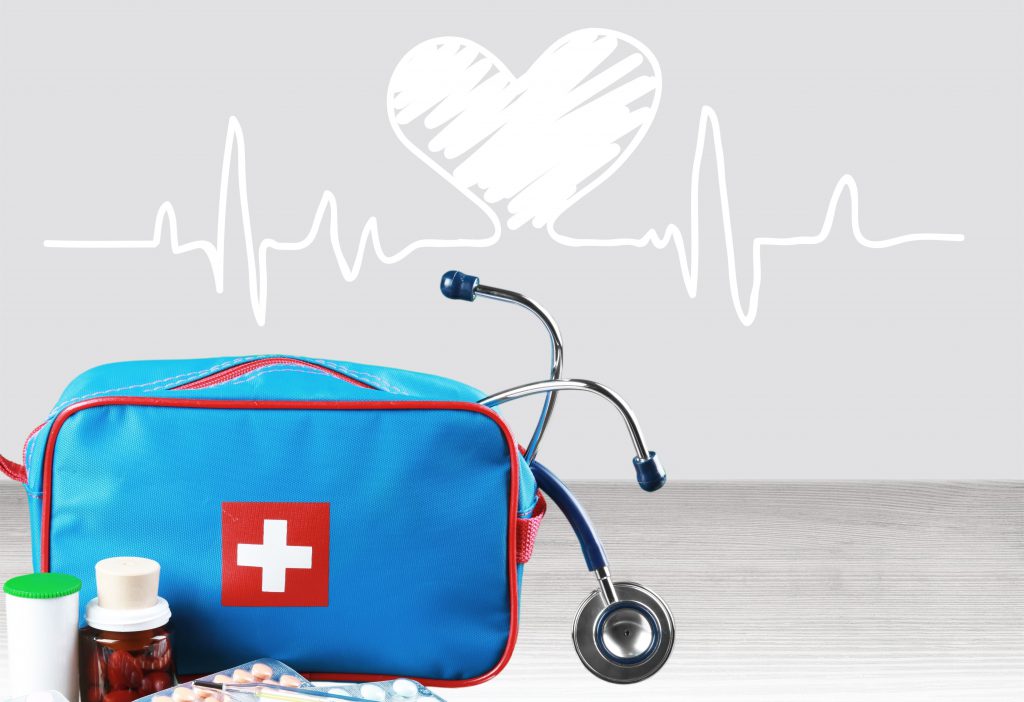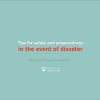Organized by FEMA (the Federal Emergency Management Agency), National Preparedness Month’s purpose is to “educate the public about how to prepare for emergencies, including national disasters, mass casualties, biological and chemical threats, radiation emergencies, and terrorist attacks.” On a smaller scale, their goal is to “promote family and community disaster and emergency planning now and throughout the year.”
This topic couldn’t be more relevant in the midst of hurricane season, especially regarding the recent impact of Hurricane Dorian.
Consulate Health Care is no stranger to the reality of emergency evacuation. Our care center staff work tirelessly every single hurricane season to ensure the safety and wellbeing of our residents.
That said, if you or someone you love live in a region potentially impacted by hurricanes or other natural disasters, like tornadoes, or if you just want peace of mind and preparation for the worst at any time, anywhere, here are some tips compiled from various sources in the event of a potential catastrophe:
• Plan your evacuation route in advance. Find out your community hurricane evacuation routes and how to find higher ground.
• Make a family (and/or friends) communication plan. Print out multiple copies, and make sure each of your family members have one. Find out community evacuation routes in your area.
• Go low. If you live in a multi-story building, take shelter in one of the lower floors. The lower, the better.
• Board up your home’s windows. Permanently installed storm shutters offer the best protection. If you don’t have those on your home, make sure to have marine plywood on hand, ⅝” that’s cut and ready to be nailed in.
• Brush up on your basic knowledge of CPR. It never hurts to practice your CPR training or refresh your memory!
• Create an emergency kit. You might want to include items such as:
– Flashlight (with fresh batteries)
– Extra batteries, probably double A or triple A
– A three day supply of drinking water–one gallon per person is recommended
– Non-perishable food that doesn’t require cooking or a can-opener
– First-aid supplies like various kinds of bandages, Band-Aids, sterile gauze pads of various sizes, a splint, antiseptic wipes, prescription medications (including extras just in case, if possible)
– Antibiotic ointment
– Antiseptic solution (such as hydrogen peroxide)
– Tweezers
– Scissors
– Thermometer
– Calamine lotion
– Plastic, non-latex gloves
– Candles and matches (keep dry!)
– Ibuprofen
– Adhesive tape
– Elastic bandages
– Cash

• Evaluate your flooding risk. Make sure you know whether your property is flood-prone or not. Be aware of any dams or levees near you, and whether or not they pose a risk.
• On a related note, educate yourself on (or reevaluate) your insurance policies, whether home, car, life, or renter’s insurance, and if you have enough time, adjust those according to your needs and concerns.
• Clean out your rain gutters and downspouts.
• If you’re in an area prone to frequent natural disasters, install a back-up generator. Consider building a safe room in your home.
• Bring all your backyard furniture and amenities inside. This includes playhouses, patio furniture, decor, garbage cans, etc. If you don’t bring it inside, then be sure to tie it down and stake it in the ground.
• Control your landscaping. Trim the trees and shrubs around your house as much as possible to minimize damage. Instead of using rock or gravel, use mulch or pinestraw, which would result in less damage.
• Install hurricane-proof doors. Your doors should have at least three hinges and a deadbolt. In that vein, large windows and sliding glass doors should be made of tempered glass.
• Make sure your vehicle is in good condition and the gas tank full.
• Avoid any floodwater that could be electrically charged from underground or downed power lines.
• Unplug small appliances and shut off propane tanks.
• Stay tuned. Watch the TV, radio, or internet for updates. Listen to authorities when they advise whether to stay, evacuate, or return home.
No matter what happens, just remember what’s most important to you.
Stay strong and keep safe!
If you found an error, highlight it and press Shift + Enter or click here to inform us.



